
“We do not have to romanticize our past in order to be aware of how it seeds our present. We do not have to suffer the waste of an amnesia that robs us of the lessons of the past rather than permit us to read them with pride as well as deep understanding. We know what it is to be lied to, and we know how important it is not lie to ourselves. We are powerful because we have survived.”
– Audre Lorde. Sister Outsider
Lesbian, Gay, Bisexual, Transgender and Queer (LGBTQ+) Pride Month is celebrated each year in the month of June to honor the 1969 Stonewall Uprising in Manhattan.
See below for select VSCS Libraries materials by LGBT+ authors and directors or that celebrate LGBTQ+ history and culture.
A sampling of recent and important books by LBGTQ+ authors or highlighting the LGBTQ+ experience. All electronic titles are available to read online and our physical titles may be requested for pick-up at a VSCS library or sent to your home.
An engaging exploration of what it means to be asexual in a world that's obsessed with sexual attraction, and what the ace perspective can teach all of us about desire and identity.
Changes on college and university campuses have echoed changes in U.S. popular culture, politics, and religion since the 1970s through unprecedented visibility of LGBTQA persons and issues. In the face of hostile campus cultures, LGBTQA students rely on knowledgeable academic advisors for support, nurturance, and the resources needed to support their persistence. This edited collection offers theoretical understanding of the literature of the field, practical strategies that can be implemented at different institutions, and best practices that helps students, staff, and faculty members understand more deeply the challenges and rewards of working constructively with LGBTQA students.
In this groundbreaking memoir, writer and LGBTQIA activist George M. Johnson shares their memories growing up Black and queer in America. From getting their teeth kicked out by bullies at age five, to loving family relationships, to their first sexual experience, these powerful stories wrestle with triumph and tragedy, weaving a rich tapestry of experience both everyday and extraordinary.
Born This Way tells the story of how a biologically based understanding of gender and sexuality became central to LGBTQ+ advocacy. Starting in the 1950s, activists sought out mental health experts to combat the pathologizing of homosexuality. As Joanna Wuest shows, these relationships were forged in subsequent decades alongside two broader, concurrent developments: the rise of an interest-group model of rights advocacy and an explosion of biogenetic and bio-based psychological research. The result is essential reading to fully understand LGBTQ+ activism today and how clashes over science remain crucial to equal rights struggles.
While the term "intersectionality" was coined in 1989, the existence of marginalized identities extends back over millennia. Byzantine Intersectionality reveals the fascinating, little-examined conversations in medieval thought and visual culture around sexual and reproductive consent, bullying and slut-shaming, homosocial and homoerotic relationships, trans and nonbinary gender identities, and the depiction of racialized minorities.
In a twenty-four-hour span, Rafael Alvarez led North Amistad High School's Mariachi Alma de la Frontera to their eleventh consecutive first-place win in the Mariachi Extravaganza de Nacional; and met, made out with, and almost hooked up with one of the cutest guys he's ever met. Now eight months later, Rafie's ready for one final win. What he didn't plan for is his family moving to San Antonio before his senior year, forcing him to leave behind his group while dealing with the loss of the most important person in his life--his beloved abuelo. Another hitch in his plan: The Selena Quintanilla-Perez Academy's Mariachi Todos Colores already has a lead vocalist, Rey Chavez--the boy Rafie made out with--who now stands between him winning and being the great Mariachi Rafie's abuelo always believed him to be. Despite their newfound rivalry for center stage, Rafie can't squash his feelings for Rey. Now he must decide between the people he's known his entire life or the one just starting to get to know the real him.
Through a series of essays (by the author and others) and interviews, this book by the editor of the Lambda Literary Award-winning anthology The Remedy offers possibilities - grounded in historical examples, present-day experiments, and dreams of the future - for more liberatory and transformative approaches to LGBTQ+ health and healing
Over the past two decades, medical and therapeutic approaches to transgender patients have changed radically, from treating a supposed pathology to offering gender-affirming care. Based on ethnographic fieldwork in New York City and Buenos Aires, Care without Pathology moves across the Americas to show how trans- health activists have taken on the project of depathologization.
(Vermont History) Conventional wisdom holds that same-sex marriage is a purely modern innovation, a concept born of an overtly modern lifestyle that was unheard of in nineteenth century America. But as Rachel Hope Cleves demonstrates in this eye-opening book, same-sex marriage is hardly new.
One of the leading physicists of her generation, Dr. Chanda Prescod-Weinstein is also one of fewer than one hundred Black American women to earn a PhD from a department of physics. Her vision of the cosmos is vibrant, buoyantly nontraditional, and grounded in Black and queer feminist lineages.
The first book of its kind, Doubly Erased is a comprehensive study of the rich tradition of LGBTQ themes and characters in Appalachian novels, memoirs, poetry, drama, and film. Appalachia has long been seen as homogenous and tradition-bound. Allison E. Carey helps to remedy this misunderstanding, arguing that it has led to LGBTQ Appalachian authors being doubly erased--routinely overlooked both within United States literature because they are Appalachian and within the Appalachian literary tradition because they are queer.
Fills a crucial need in helping nurses to provide safe, culturally-competent care to LGBTQ+ patients
Long before people identified as transgender or lesbian, there were female husbands and the women who loved them. Female husbands - people assigned female who transed gender, lived as men, and married women - were true queer pioneers. Moving deftly from the colonial era to just before the First World War, Jen Manion uncovers the riveting and very personal stories of ordinary people who lived as men despite tremendous risk, danger, violence, and threat of punishment.
A textured, sharply written memoir about coming of age in the fourth decade of one's life and embracing one's truest self in a world that demands gender fit in neat boxes. From the outside, Oliver Radclyffe spent four decades living an immensely privileged, beautifully composed life. As the daughter of two well-to-do British parents and the wife of a successful man from an equally privileged family, Oliver played the parts expected of him. He checked off every box-marriage, children (four), a white-picket fence surrounding a stately home in Connecticut, and a golden retriever. But beneath the shiny veneer, Oliver was desperately trying to stay afloat as he struggled to maintain a facade of normalcy. And between his hair falling out and incapacitating mood swings, Oliver realized the life of a trapped housewife was not one he was ever meant to live.
A fresh and brilliantly told memoir from a cult favorite comic artist (and Vermonter), marked by gothic twists, a family funeral home, sexual angst, and great books.
Strobing lights and dark rooms, drag queens on counters, first kisses, last call; the gay bar has long been a place of solidarity and sexual expression. Now they are closing, a cultural demolition that has Jeremy Atherton Lin wondering: Could this spell the end of gay identity as we know it?
So often the stories shared by trans people about their transition centre on gender dysphoria: a feeling of deep discomfort with their birth-assigned gender, and a powerful catalyst for coming out or transitioning. But for many non-cisgender people, it's gender euphoria which pushes forward their transition: the joy the first time a parent calls them by their chosen name, the first time they have the confidence to cut their hair short, the first time they truly embrace themself. In this ground-breaking anthology, nineteen trans, non-binary, agender, gender-fluid and intersex writers share their experiences of gender euphoria: an agender dominatrix being called 'Daddy,' an Arab trans man getting his first tattoos, a trans woman embracing her inner fighter.
In 2014, Maia Kobabe, who uses e/em/eir pronouns, thought that a comic of reading statistics would be the last autobiographical comic e would ever write. At the time, it was the only thing e felt comfortable with strangers knowing about em. Now, Gender Queer is here. Maia's intensely cathartic autobiography charts eir journey of self-identity, which includes the mortification and confusion of adolescent crushes, grappling with how to come out to family and society, bonding with friends over erotic gay fanfiction, and facing the trauma and fundamental violation of pap smears.
"Is our love of pop music innately queer? That's the question Sasha Geffen answers--with a "yes," of course--in this book. Beginning with the Beatles and moving to the present, Geffen identifies artists of all stripes who performed "outside the limitations of their assigned genders."
Shy and softhearted Charlie Spring sits next to rugby player Nick Nelson in class one morning. A warm and intimate friendship follows, and that soon develops into something more for Charlie, who doesn't think he has a chance. But Nick is struggling with feelings of his own, and as the two grow closer and take on the ups and downs of high school, they come to understand the surprising and delightful ways in which love works.
When fourteen-year-old Lamya H realizes she has a crush on her teacher--her female teacher--she covers up her attraction, an attraction she can't yet name, by playing up her roles as overachiever and class clown. Born in South Asia, she moved to the Middle East at a young age and has spent years feeling out of place, like her own desires and dreams don't matter, and it's easier to hide in plain sight. To disappear. But one day in Quran class, she reads a passage about Maryam that changes everything:
Linus Baker is a by-the-book case worker in the Department in Charge of Magical Youth. He's tasked with determining whether six dangerous magical children are likely to bring about the end of the world. Arthur Parnassus is the master of the orphanage. He would do anything to keep the children safe, even if it means the world will burn. And his secrets will come to light. The House in the Cerulean Sea is an enchanting queer love story, masterfully told, about the profound experience of discovering an unlikely family in an unexpected place―and realizing that family is yours.
A queer, mixed race writer working in a largely white, male field, science and conservation journalist Sabrina Imbler has always been drawn to the mystery of life in the sea, and particularly to creatures living in hostile or remote environments. Each essay in their debut collection profiles one such creature. Imbler discovers that some of the most radical models of family, community, and care can be found in the sea, from gelatinous chains that are both individual organisms and colonies of clones to deep-sea crabs that have no need for the sun, nourished instead by the chemicals and heat throbbing from the core of the Earth.
How We Fight for Our Lives is a stunning coming-of-age memoir about a young, black, gay man from the South as he fights to carve out a place for himself, within his family, within his country, within his own hopes, desires, and fears. Through a series of vignettes that chart a course across the American landscape, Jones draws readers into his boyhood and adolescence--into tumultuous relationships with his family, into passing flings with lovers, friends, and strangers. Each piece builds into a larger examination of race and queerness, power and vulnerability, love and grief: a portrait of what we all do for one another--and to one another--as we fight to become ourselves.
For a long time, Lucy Sante felt unsure of her place. Born in Belgium, the only child of conservative working-class Catholic parents who transplanted their little family to the United States, she felt at home only when she moved to New York City in the early 1970s and found her people among a band of fellow bohemians. Some would die young, to drugs and AIDS, and some would become jarringly famous. Sante flirted with both fates, on her way to building an estimable career as a writer. But she still felt like her life a performance. She was presenting a façade, even to herself .Sante's memoir braids together two threads of personal narrative: the arc of her life, and her recent step-by-step transition to a place of inner and outer alignment. Sante brings a loving irony to her account of her unsteady first steps; there was much she found she still needed to learn about being a woman after some sixty years cloaked in a man's identity, in a man's world.
In the late 1980s, the AIDS pandemic was annihilating queer people, intravenous drug users, and communities of color in America, and disinformation about the disease ran rampant. Out of the activist group ACT UP (AIDS Coalition to Unleash Power), an art collective that called itself Gran Fury formed to campaign against corporate greed, government inaction, stigma, and public indifference to the epidemic.
Historian David K. Johnson here relates the frightening, untold story of how, during the Cold War, homosexuals were considered as dangerous a threat to national security as Communists. Charges that the Roosevelt and Truman administrations were havens for homosexuals proved a potent political weapon, sparking a "Lavender Scare" more vehement and long-lasting than McCarthy's Red Scare.
In this feminist science fiction novel, planet Gethen’s society of intersex people exist without any gender-based discrimination. But when Genly, an emissary from the human galaxy, arrives, he struggles to overcome his ingrained prejudices about the significance of “male” and “female.”
A survey, within one volume, of the history of critical responses to LGBTQ literature from the beginning to the present day, this book explores changes in attitudes, literature and criticism over a period of two and a half thousand years. For various reasons it focuses on literature of 'the West', trying to give readers a clear sense, within a relatively short compass, not only of the development of 'queer' literature (perhaps the most encompassing of all terms) but especially of critical responses to that literature, notably during the past century and particularly the past fifty years.
Essential reading for educators and other school community members who are navigating the increasingly complicated laws and legal rulings related to LGBTQ students, employees, and community members.
Nepantla Squared maps the lives of two transgender mestiz@s, one during the turn of the twentieth century and one during the turn of the twenty-first century, to chart the ways race, gender, sex, ethnicity, and capital function differently in different times. To address the erasure of transgender mestiz@ realities from history, Linda Heidenreich employs an intersectional analysis that critiques monopoly and global capitalism. Heidenreich builds on the work of Gloria Anzaldúa's concept of nepantleras, those who could live between and embody more than one culture, to coin the term nepantla², marking times of capitalist transition where gender was also in motion. Transgender mestiz@s, too, embodied that movement.
The Oscar-nominated star who captivated the world with his performance in Juno finally shares his truth.
In her memoir, Paper Doll, Dylan pulls back the curtain of her "it girl" lifestyle with an honest, witty, and intimate reflection of her life post-transitioning. She covers everything from her first big break in theater to the first time her dad recognized her as a girl to how she handled scandals, cancellations, and tucking.
A singular and stunning debut novel about the forbidden union between two enslaved young men on a Deep South plantation, the refuge they find in each other, and a betrayal that threatens their existence.
Workplaces have traditionally been viewed as "straight spaces" in which queer people passed. As a result, historians have directed limited attention to the experiences of queer people on the job. Queer Career rectifies this, offering an expansive historical look at sexual minorities in the modern American workforce. Arguing that queer workers were more visible than hidden and, against the backdrop of state aggression, vulnerable to employer exploitation, Margot Canaday positions employment and fear of job loss as central to gay life in postwar America.
hough frequently ignored by the music mainstream, queer and transgender country and Americana artists have made essential contributions as musicians, performers, songwriters, and producers. Queer Country blends ethnographic research with analysis and history to provide the first in-depth study of these artists and their work.
Data has never mattered more. Our lives are increasingly shaped by it and how it is defined, collected and used. But who counts in the collection, analysis and application of data? This important book is the first to look at queer data - defined as data relating to gender, sex, sexual orientation and trans identity/history.
From Ozma of Oz's backstory as a boy named Tip to the genderless character Chick the Cherub, from the homosocial adventures of his Boy Fortune Hunters to the determined rejection of romance for Aunt Jane's Nieces, Queer Oz: L. Frank Baum's Trans Tales and Other Astounding Adventures in Sex and Gender shows how Baum exploited the freedoms of children's literature, in its carnivalesque celebration of a world turned upside-down, to reimagine the meanings of gender and sexuality in early twentieth-century America and to re-envision them for the future.
The horror genre mirrors the American queer experience, both positively and negatively, overtly and subtextually, from the lumbering, flower-picking monster of Frankenstein (1931) to the fearless intersectional protagonist of the Fear Street Trilogy (2021). This is a historical look at the queer experiences of the horror genre's characters, performers, authors and filmmakers. Offering a fresh look at the horror genre's queer roots, this book documents how diverse stories have provided an outlet for queer people--including transgender and non-binary people--to find catharsis and reclamation.
Lesbian, bisexual, and queer families formed after the dissolution of a marriage face a range of obstacles. In Queer Stepfamilies, Katie L. Acosta offers a wealth of insight into their complex experiences as they negotiate parenting among multiple parents and family-building in a world not designed to meet their needs.
A sweeping history of Indigenous traditions of gender, sexuality, and resistance that reveals how, despite centuries of colonialism, Two-Spirit people are reclaiming their place in Native nations.
First Son Alex Claremont-Diaz, with his sister and the Veep's genius granddaughter, are the White House Trio, a beautiful millennial marketing strategy for his mother, President Ellen Claremont. Then photos of a confrontation with his longtime nemesis Prince Henry at a royal wedding leak to the tabloids. The plan for damage control: stage a fake friendship between the First Son and the Prince. Alex soon discovers that beneath Henry's Prince Charming veneer, there's a soft-hearted eccentric with a dry sense of humor and more than one ghost haunting him. As President Claremont kicks off her reelection bid, Alex finds himself hurtling into a relationship with Henry that could derail the campaign and upend two nations.
The notion that everyone wants sex--and that we all have to have it--is false. It's intertwined with our ideas about capitalism, race, gender, and queerness. And it impacts the most marginalized among us. For asexual folks, it means that ace and A-spec identity is often defined by a queerness that's not queer enough, seen through a lens of perceived lack- lack of pleasure, connection, joy, maturity, and even humanity.
The Rowman & Littlefield Handbook of Transgender Studies is a comprehensive yet concise overview of important issues, themes, and research on transgender people and populations. Coupling both their scholarly expertise with their lived experiences, the contributors tackle a full gamut of topics, including medical care, education, coming out, bathroom and military politics and possibilities, and the creation of families.
Every government agency in the United States, from Homeland Security to Departments of Motor Vehicles, has the authority to make its own rules for sex classification. Many transgender people find themselves in the bizarre situation of having different sex classifications on different documents. Whether you can change your legal sex to "F" or "M" (or more recently "X") depends on what state you live in, what jurisdiction you were born in, and what government agency you're dealing with. In Sex Is as Sex Does, noted transgender advocate and scholar Paisley Currah explores this deeply flawed system, showing why it fails transgender and non-binary people.
A gorgeous story of a native Hawaiian family, telling a tale of old gods & faith & modernity & survival & sexuality & the history of Hawai’i & just so much more.
Some days--or weeks, or months, or even years--being trans feels bad. Yet as Hil Malatino points out, there is little space for trans people to think through, let alone speak of, these bad feelings. Negative emotions are suspect because they unsettle narratives of acceptance or reinforce virulently phobic framings of trans as inauthentic and threatening.
Presenting the essential writings of black lesbian poet and feminist writer Audre Lorde, Sister Outsider celebrates an influential voice in twentieth-century literature.
A young, queer Palestinian American woman pieces together her great aunt's secrets in this sweeping debut, a family saga confronting questions of sexual identity, exile, and lineage.
For the fiftieth anniversary of the Stonewall uprising, an anthology chronicling the tumultuous fight for LGBTQ rights in the 1960s and the activists who spearheaded it, with a foreword by Edmund White.
Among the ashes of a dying world, an agent of the Commandment finds a letter. It reads: Burn before reading. Thus begins an unlikely correspondence between two rival agents hellbent on securing the best possible future for their warring factions. This Is How You Lose the Time War is as much a queer romance between two deadly women as it is a rollicking time travel adventure story.
There is no one way to be transgender. Trans Bodies, Trans Selves is a revolutionary resource--a comprehensive, reader-friendly guide for transgender people, with each chapter written by transgender and gender expansive authors.
The stories in the Grimm brothers'Kinder- und Hausmärchen (Children's and Household Tales), first published in 1812 and 1815, have come to define academic and popular understandings of the fairy tale genre. Yet over a period of forty years, the brothers, especially Wilhelm, revised, edited, sanitized, and bowdlerized the tales, publishing the seventh and final edition in 1857 with many of the sexual implications removed. However, the contributors in Transgressive Tales: Queering the Grimms demonstrate that the Grimms and other collectors paid less attention to ridding the tales of non-heterosexual implications and that, in fact, the Grimms' tales are rich with queer possibilities.
In this candid, first-of-its-kind memoir, Laura Kate Dale recounts what life is like growing up as a gay trans woman on the autism spectrum. From struggling with sensory processing, managing socially demanding situations and learning social cues and feminine presentation, through to coming out as trans during an autistic meltdown, Laura draws on her personal experiences from life prior to transition and diagnosis, and moving on to the years of self-discovery, to give a unique insight into the nuances of sexuality, gender and autism, and how they intersect.
In the mid-twentieth century, gay life flourished in American cities even as the state repression of queer communities reached its peak. Liquor investigators infiltrated and shut down gay-friendly bars. Plainclothes decoys enticed men in parks and clubs. Vice officers surveilled public bathrooms through peepholes and two-way mirrors. In Vice Patrol, Anna Lvovsky chronicles this painful story, tracing the tactics used to criminalize, profile, and suppress gay life from the 1930s through the 1960s, and the surprising controversies those tactics often inspired in court.
When Language Broke Open collects the creative offerings of forty-five queer and trans Black writers of Latin American descent who use poetry, prose, and visual art to illustrate Blackness as a geopolitical experience that is always changing. Telling stories of Black Latinidades, this anthology centers the multifaceted realities of the LGBTQ community. By exploring themes of memory, care, and futurity, these contributions expand understandings of Blackness in Latin America, the Caribbean, and their U.S.-based diasporas.
This singular history of a prison, and the queer women and trans people held there, is a window into the policing of queerness and radical politics in the twentieth century.
A selection of documentaries and feature films by LBGTQ+ directors or that highlight the LGBTQ+ experience from the library streaming video databases: Kanopy and Films on Demand.
If you haven't accessed Kanopy before, learn how to set up your account in this FAQ.
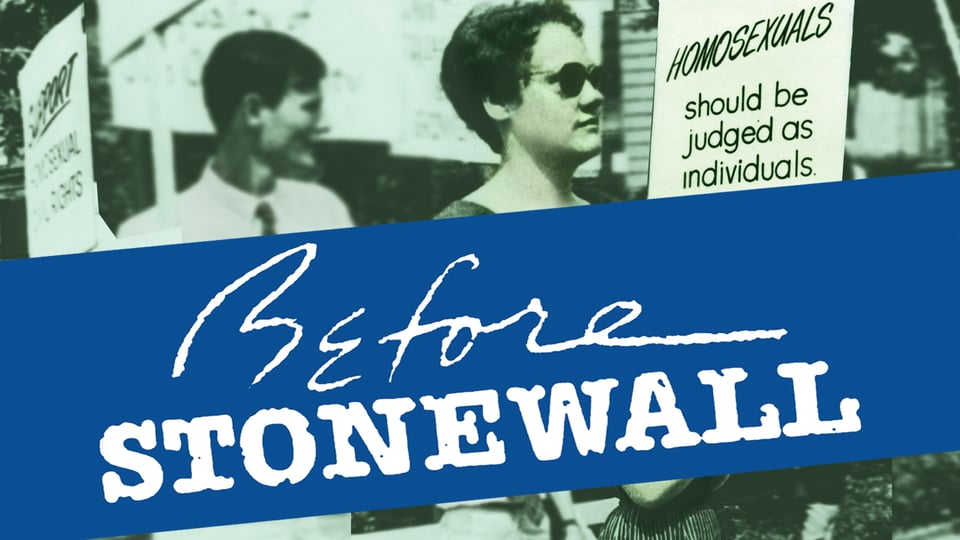
1984 1 hr. 27 min.
In 1969 the police raided the Stonewall Inn, a gay bar in New York City's Greenwich Village, leading to three nights of rioting by the city's gay community. With this outpouring of courage and unity the Gay Liberation Movement had begun.

2021 2 hr. 17 min.
The story of decorated WW1 hero and renowned British poet Siegfried Sassoon (Jack Lowden), who became one of the “Bright Young Things” of London society in the 1920s.
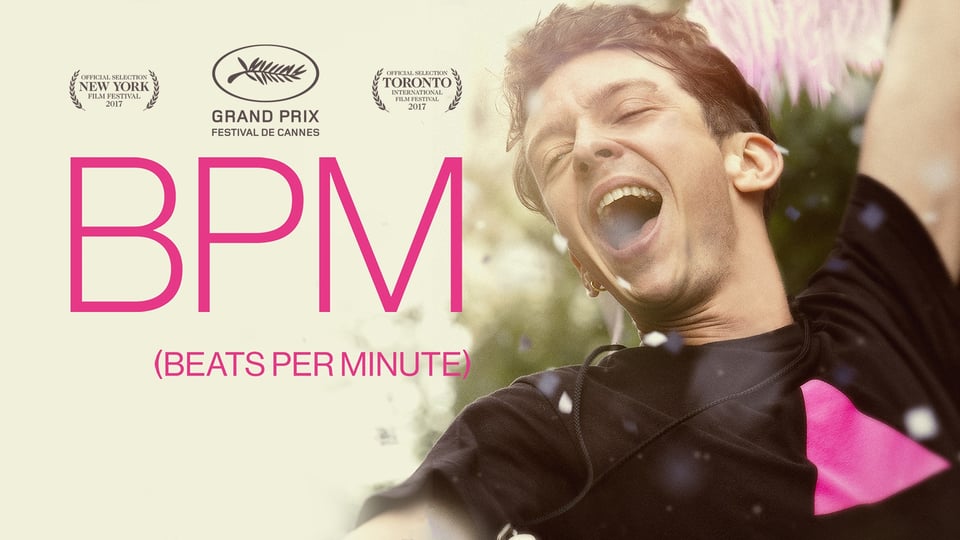
2017 2 hr. 23 min.
In Paris in the early 1990s, members of the activist group ACT UP battle for those stricken with HIV/AIDS, taking on sluggish government agencies and major pharmaceutical companies in bold, invasive actions. Amid rallies, protests, fierce debates and ecstatic dance parties, newcomer to the group Nathan falls in love with Sean, the ACT UP’s radical firebrand, and their passion sparks against the shadow of mortality as the activists fight for a breakthrough.

2020 1 hr. 32 min.
Born to Be follows the work of Dr. Jess Ting (he/him) at the groundbreaking Mount Sinai Center for Transgender Medicine and Surgery. There, for the first time ever in New York City, transgender and gender non-binary people have access to quality gender-affirming care.
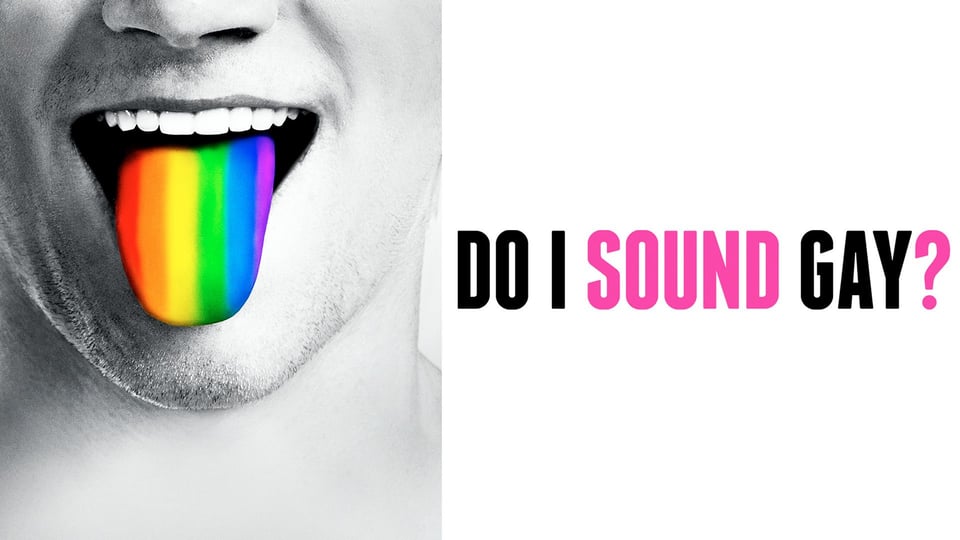
2014 1 hr. 17 min.
What makes a voice "gay?" A breakup with his boyfriend sets journalist David Thorpe on a quest to unravel a linguistic mystery. All his life, Thorpe, like many gay men, has felt self-conscious about his stereotypically un-macho voice. But what are its origins? And why is there such a stigma attached to "sounding gay?" As Thorpe consults with everyone from speech therapists to public figures to total strangers, he unpacks complex cultural questions with wit, verve, and intelligence.

2014 1 hr. 44 min.
Two women take their carnal desires to the extreme in this kinky, deliciously twisted tale of sex and butterflies.

2016 1 hr. 34 min.
Ned, a bullied outsider, and Conor, a star athlete, are forced to room together at their boarding school. The boys take an instant dislike to each other, and seem destined to remain enemies until an English teacher, Mr. Sherry, begins to drill into them the value of finding one's own voice.
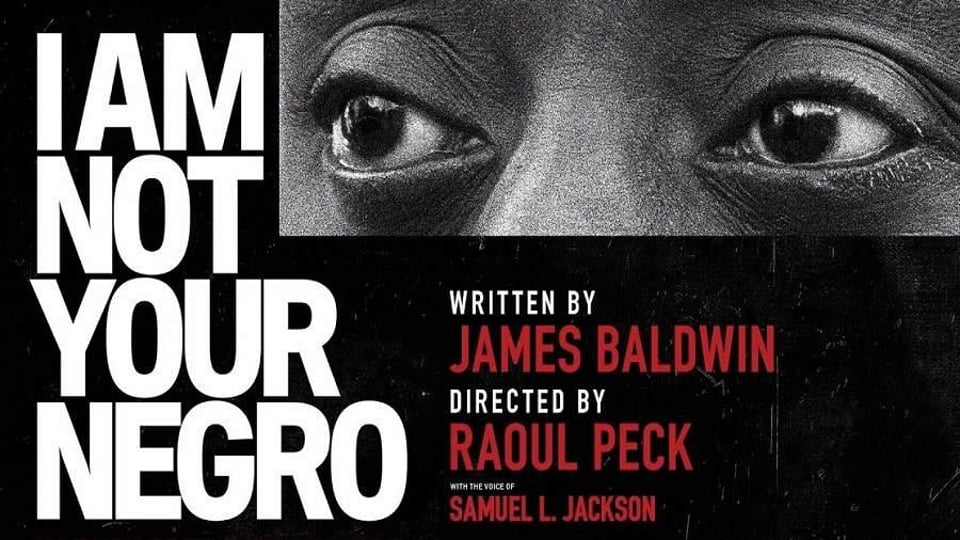
2016 1 hr. 33 min.
In 1979, James Baldwin wrote a letter to his literary agent describing his next project, Remember This House. The book was to be a revolutionary, personal account of the lives and successive assassinations of three of his close friends--Medgar Evers, Malcolm X and Martin Luther King, Jr. At the time of Baldwin's death in 1987, he left behind only thirty completed pages of his manuscript.

Documentary filmmaker Erik (Thure Lindhardt) and closeted lawyer Paul (Zachary Booth, Damages) meet through a casual encounter, but soon find a deeper connection and become a couple. Individually and together, they are risk takers—compulsive, and fueled by drugs and sex. In an almost decade-long relationship defined by highs, lows, and dysfunctional patterns, Erik struggles to negotiate his own boundaries and dignity while being true to himself.
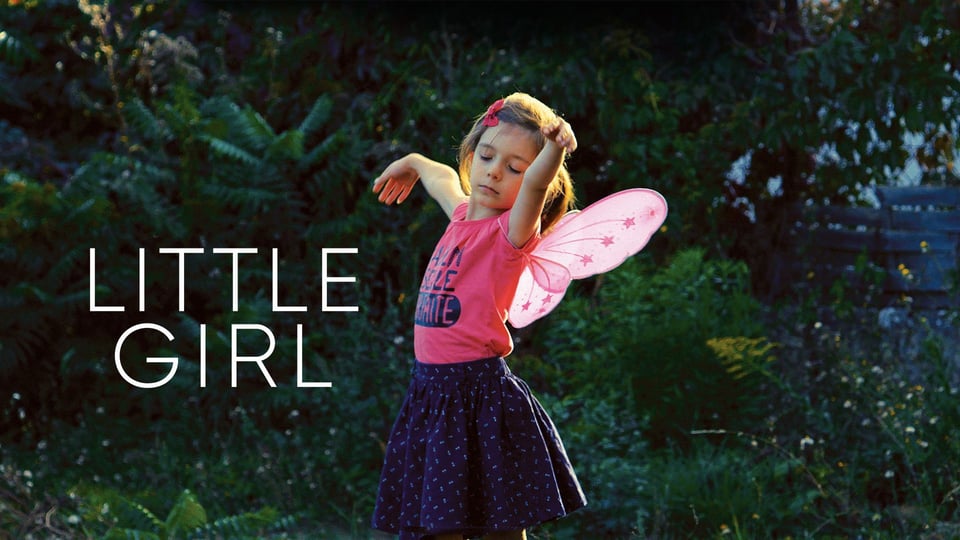
2020 - 1 hr. 28 min.
Little Girl is the moving portrait of 7-year-old Sasha, who has always known that she is a girl. Sasha’s family has recently accepted her gender identity, embracing their daughter for who she truly is while working to confront outdated norms and find affirmation in a small community of rural France. Realized with delicacy and intimacy, Sébastien Lifshitz’s documentary poetically explores the emotional challenges, everyday feats, and small moments in Sasha’s life.

1990 1 hr. 17 min.
Where does voguing come from, and what, exactly, is throwing shade? This landmark documentary provides a vibrant snapshot of the 1980s through the eyes of New York City’s African American and Latinx Harlem drag-ball scene.
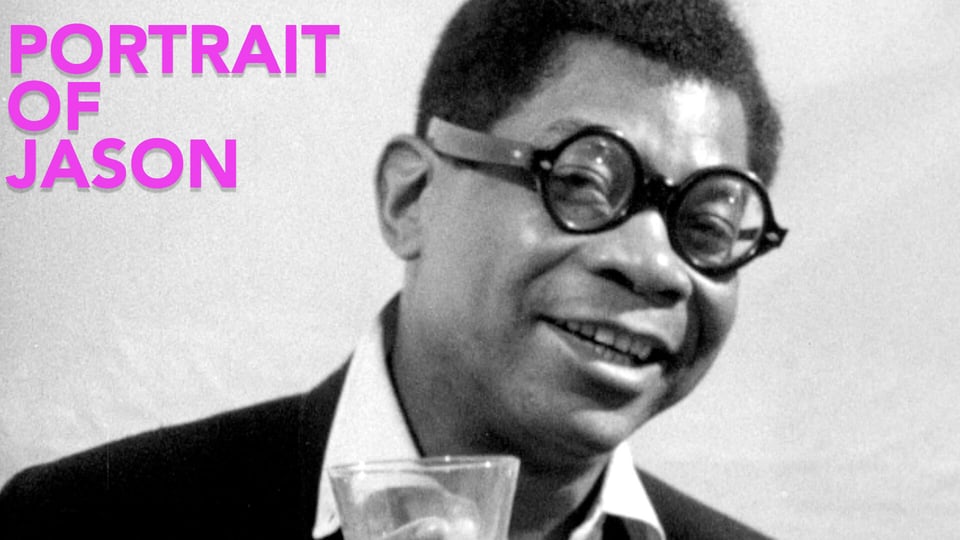
1967 1 hr. 47 min.
On December 2, 1966, director Shirley Clarke and a miniscule film crew gathered in her apartment at the Hotel Chelsea. Bestowed for twelve hours with the one-and-only Jason Holliday, Clarke confronted the iconic performer about his good times and bad behavior as a gay hustler, on-and-off houseboy and aspiring cabaret performer. As the cameras rolled and Holliday spun tales, sang songs and donned costumes through the night, a mesmerizing portrait formed of a remarkable man.
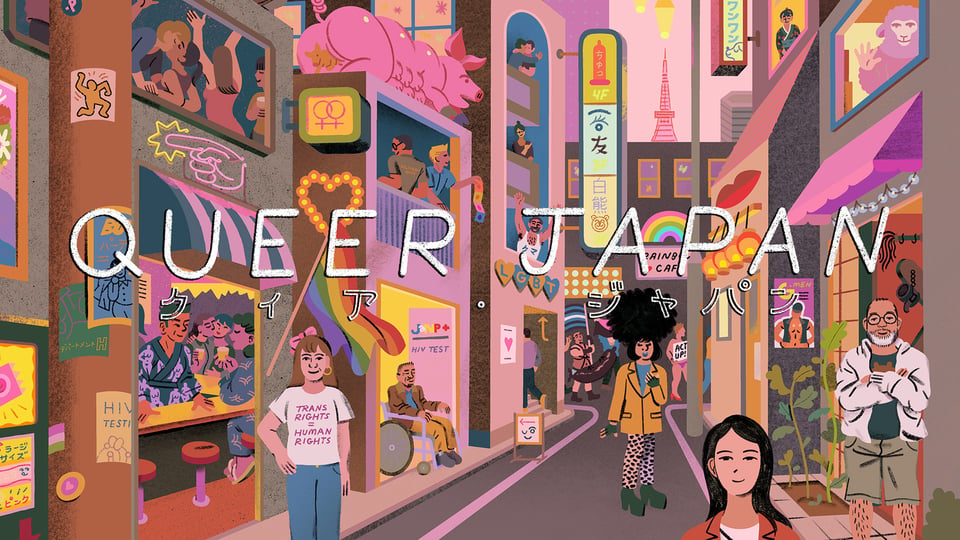
2019 1 hr. 38 min.
Trailblazing artists, activists, and everyday people from across the spectrum of gender and sexuality defy social norms and dare to shine in this kaleidoscopic view of LGBTQ+ culture in contemporary Japan. From glossy pride parades to playfully perverse underground parties, Queer Japan pictures people living brazenly unconventional lives in the sunlight, the shadows, and everywhere in between.

1984 1 hr. 28 min.
A true twentieth-century trailblazer, Harvey Milk was an outspoken human rights activist and one of the first openly gay U.S. politicians elected to public office; even after his assassination in 1978, he continues to inspire disenfranchised people around the world.

2004 1 hr. 54 min.
Tropical Malady chronicles the mystical love affair between a soldier and a young man in the country he seduces, soon to be disrupted by the young man's sudden disappearance. Local legends claim the young man was transformed into a mythic wild beast, and the soldier journeys alone into the heart of the Thai jungle in search of him.

2017 1 hr. 28 min.
The Wound is an exploration of tradition and sexuality set amid South Africa’s Xhosa culture. Every year, the tribe’s young men are brought to the mountains of the Eastern Cape to participate in an ancient coming-of-age ritual. Xolani, a quiet and sensitive factory worker (played by openly gay musician Nakhane Touré), is assigned to guide Kwanda, a city boy from Johannesburg sent by his father to be toughened up, through this rite of passage into manhood.
This work is licensed under CC BY-NC-SA 4.0
